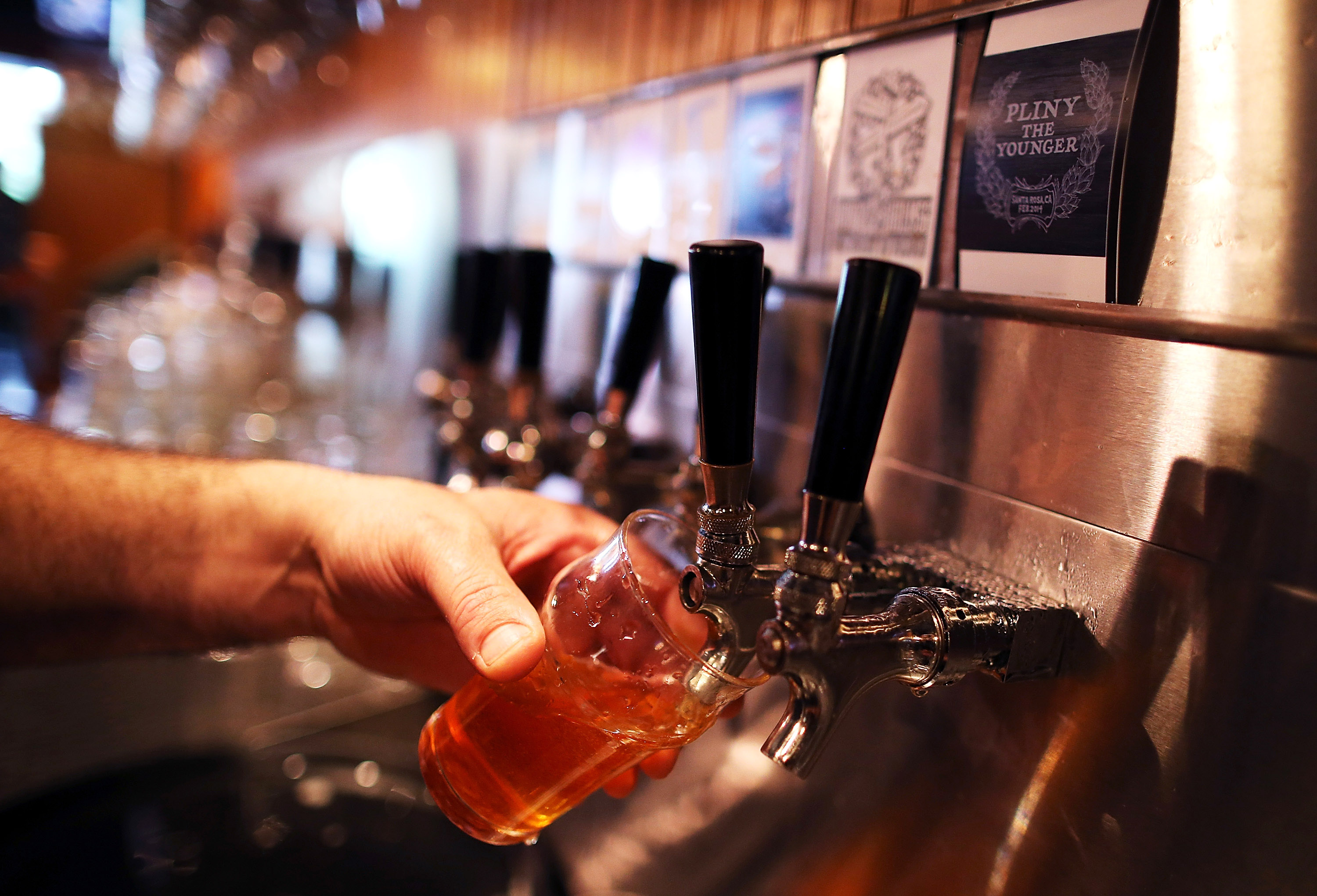The secrets to craft brewers' success
Part of our series on the future of small business in America


A free daily email with the biggest news stories of the day – and the best features from TheWeek.com
You are now subscribed
Your newsletter sign-up was successful
Craft brewers pulled off an impressive feat in 2013, collectively shipping more barrels per year than industry titan Budweiser. And they haven't looked back since.
Valued at roughly $19.6 billion in 2014, the craft brew industry upped production volume by 18 percent. Craft brewers are growing faster than the beer market in general, according to the Brewers Association, and may snag 20 percent of the beer market in terms of volume share by 2020.
One reason for craft beer's success is blatantly clear, especially to beer snobs who wouldn't dare touch a can of Bud Light Lime-A-Rita, even if it were the last source of sustenance on Earth. Indeed, as The New Yorker suggests, craft brewers care a lot about something beer giants like Anheuser-Busch apparently don't: taste. Using a strategy called true differentiation, craft brewers have found a way to make their product stand out in a crowded market, simply by making their product good.
The Week
Escape your echo chamber. Get the facts behind the news, plus analysis from multiple perspectives.

Sign up for The Week's Free Newsletters
From our morning news briefing to a weekly Good News Newsletter, get the best of The Week delivered directly to your inbox.
From our morning news briefing to a weekly Good News Newsletter, get the best of The Week delivered directly to your inbox.
There's no denying that sipping a bottle of Lagunitas IPA or a lesser-known favorite is more pleasant than killing off that stray can of Coors Light in your friend's party fridge. But flavor isn't craft beer's only driving force. There's plenty more that makes the craft brew industry a fascinating sector of small business to watch.
For one thing, craft brewers play well with others, displaying the sort of collaboration and positivity that has long been a hallmark of small business in America. Samuel Adams, whose parent company Boston Beer Co. is the nation's second-largest craft brewer, doesn't forget about the little guys. They offer loans to aspiring brewers. Founder Jim Koch's reasoning for the program is simple enough:
For me personally, and for us as a company, it connects us with our small-business roots. And if one of these companies is successful enough that they take some market share from us, well, more power to them. I don't worry about that. I worry about how we create a beer culture that respects the art of brewing and wants beer with flavor, taste, and authenticity. If we can create that environment, there will be plenty of business for all of us. [Inc.]
Is offering loans also great publicity for Samuel Adams? Of course. But assuming publicity and industry benefits are mutually exclusive is probably overly cynical. Providing loans looks good and does good. Samuel Adams has also been known to help out fellow brewers in need of supplies. In 2008, during a crippling worldwide hops shortage, Koch sold his company's specialty hops to competitors at cost.
Of course, like any other businesses, craft breweries have their spats. It's not uncommon for them to go to court over whose label design looks too much like whose, or whose product should even qualify as craft beer. Lagunitas Brewing Company founder Tony Magee notably isn't one to shy away from confrontation.
A free daily email with the biggest news stories of the day – and the best features from TheWeek.com
But the feistiness that owners like Magee proudly display is arguably an asset in and of itself. Craft brewers are good at loudly broadcasting their passion for what they do, a strength that pays off in the political arena. The big beer-related debate in Congress this session is over how to structure excise taxes, and small brewers are making their voices heard on the two competing bills, both in committee.
Speaking out helps business on a local level, too. In Florida, craft brewers banded together in a years-long fight for legal permission to sell 64-oz. growlers. Resorting to 32-oz. vessels confused tourists and hurt sales. Finally, in 2015, the state legislature passed the law, putting Florida brewers on par with their peers nationwide.
Naturally, craft beer's continued success is bound to slowly lead somewhere else — somewhere decidedly less hip and more corporate. Lagunitas has worked hard for two decades, growing at a lucrative rate. Now, they've sold a 50 percent stake to Heineken. Depending on how you see the deal, which will leave Lagunitas autonomous, it's either selling out in the worst way possible or totally cleaning up. However it looks, it's unmistakably a sign of the attention-demanding powerhouse craft brewers have built.
The Washington Post wisely asserts that small business owners in any field can stand to learn from the success of craft brewers. So take note: Collaborative energy, a spirited attitude, and a standout product are a winning combination.
Julie Kliegman is a freelance writer based in New York. Her work has appeared in BuzzFeed, Vox, Mental Floss, Paste, the Tampa Bay Times and PolitiFact. Her cats can do somersaults.
-
 The ‘ravenous’ demand for Cornish minerals
The ‘ravenous’ demand for Cornish mineralsUnder the Radar Growing need for critical minerals to power tech has intensified ‘appetite’ for lithium, which could be a ‘huge boon’ for local economy
-
 Why are election experts taking Trump’s midterm threats seriously?
Why are election experts taking Trump’s midterm threats seriously?IN THE SPOTLIGHT As the president muses about polling place deployments and a centralized electoral system aimed at one-party control, lawmakers are taking this administration at its word
-
 ‘Restaurateurs have become millionaires’
‘Restaurateurs have become millionaires’Instant Opinion Opinion, comment and editorials of the day
